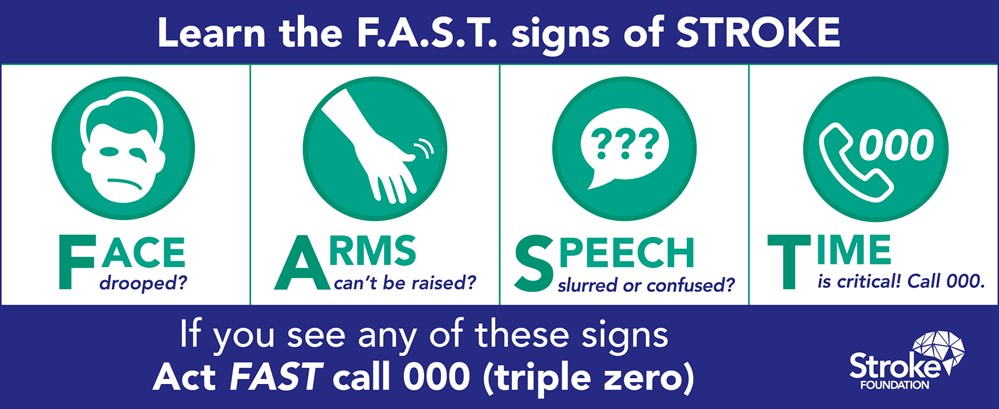HIGH BLOOD PRESSURE
Do you know your blood pressure? #DYKYBP
Jump To Section:
6 million
adult Australians
have high blood pressure
1 in 4
men have
uncontrolled high
blood pressure
1 in 5
women have
uncontrolled high
blood pressure
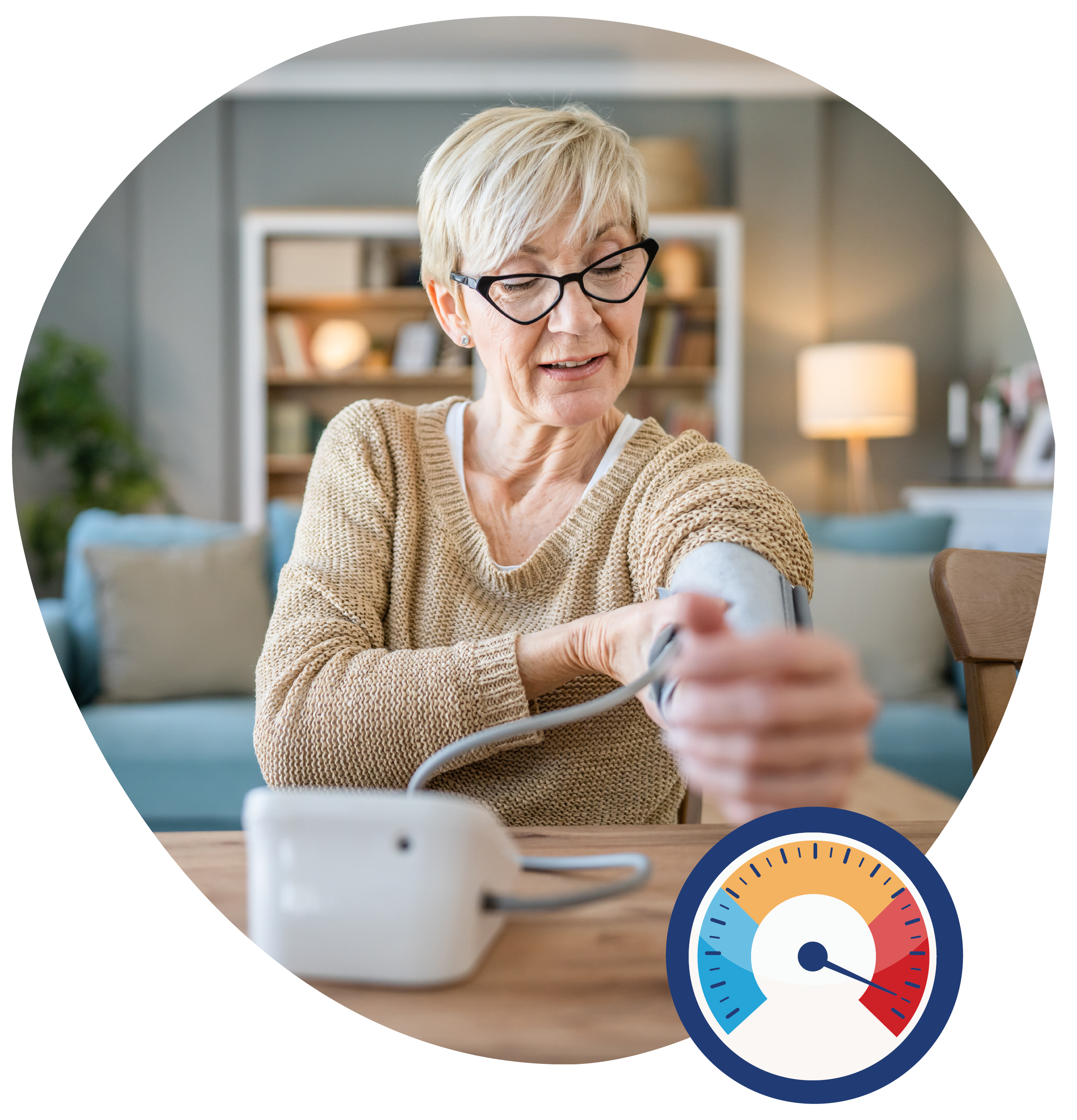
Blood pressure (BP) is the force of blood pushing on the walls of the blood vessels.
Your blood pressure will go up and down naturally throughout the day depending on what you are doing, especially if you are doing exercise.
When this force, or pressure, is too high, the heart has to pump harder and the blood vessels are put under greater strain as they carry blood.
High blood pressure is when your blood pressure is permanently higher than normal and is one of the main risk factors of developing heart attacks and strokes.
WHAT IS HIGH BLOOD PRESSURE?
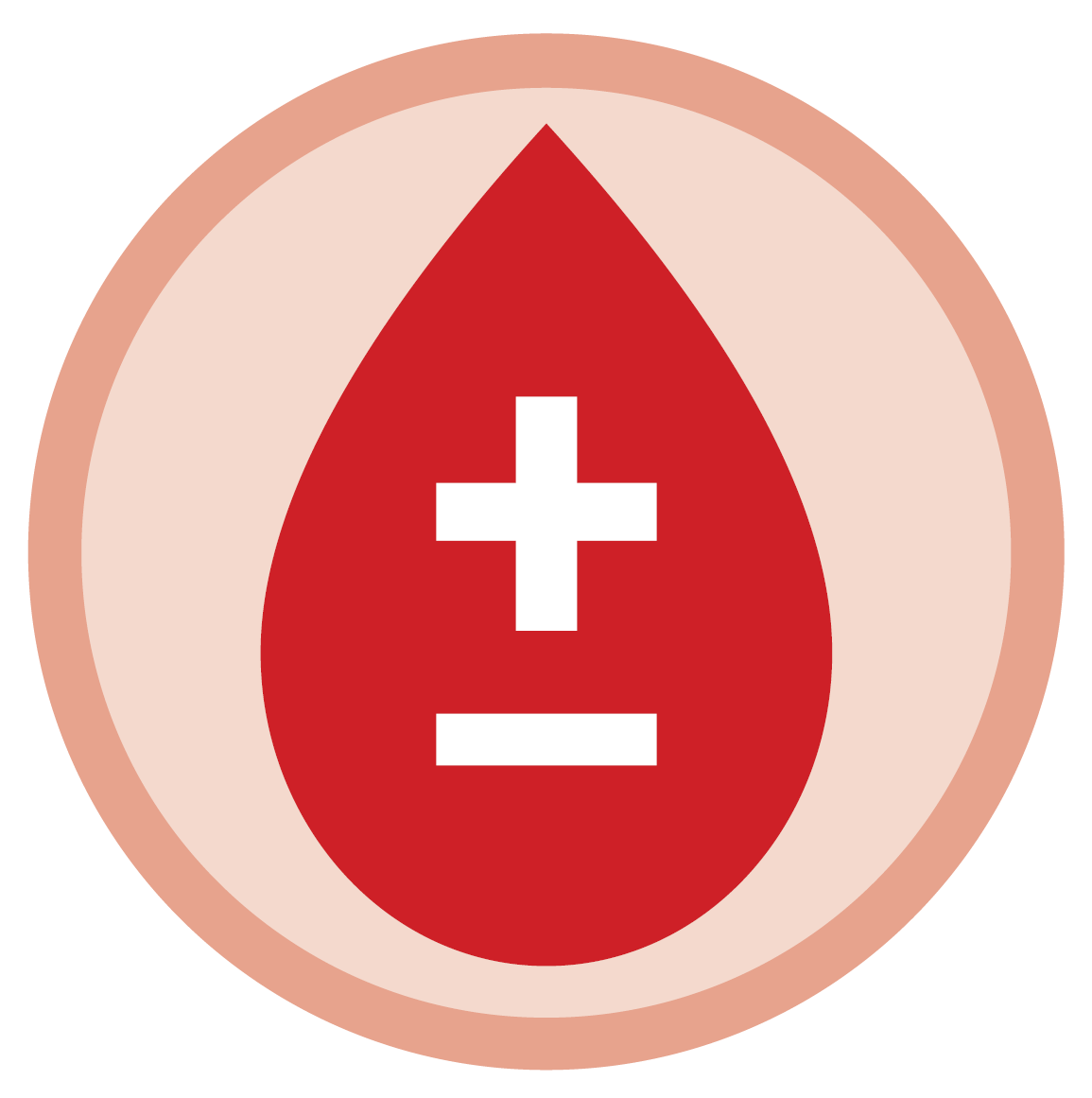
Blood pressure is the force of blood against the walls of blood vessels (arteries) that carry blood away from your heart to other parts of your body. This varies with different activities, across the day and night, and from one day to another
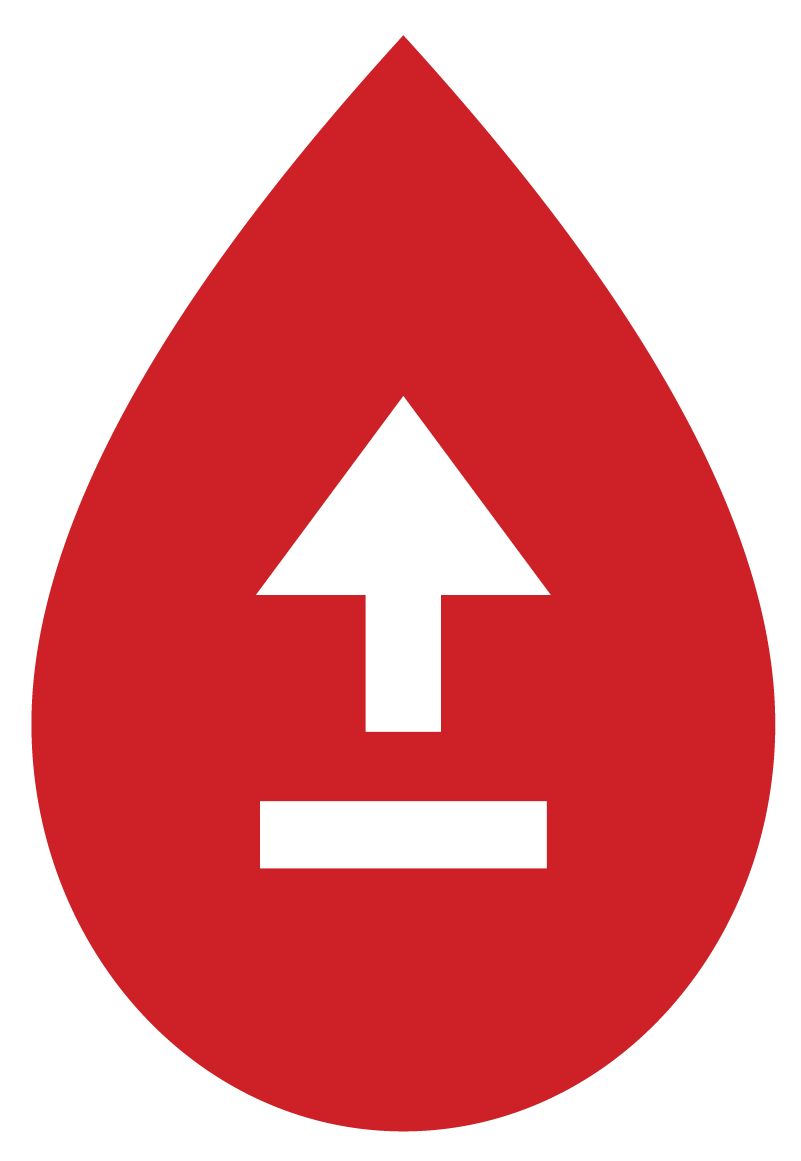
Consistently high BP can lead to damage in the arteries and organs, and is a leading cause of stroke, heart disease, and kidney disease.
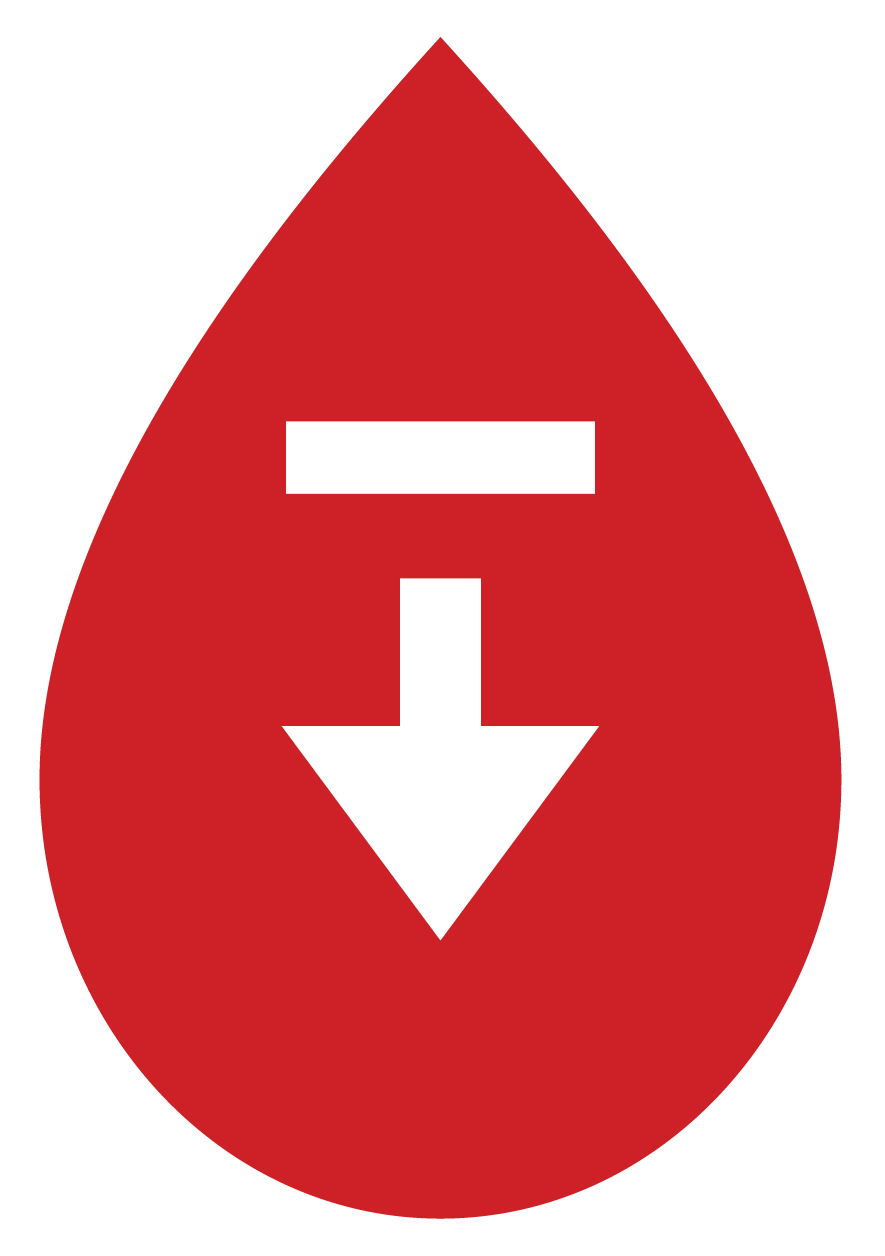
Lowering your BP, by even just 5mmHg*, can significantly lower the chance of developing serious health problems like the ones mentioned above.
The reasons for developing high BP are complex and can include lifestyle factors such as diet and physical activity, genetic factors, and other medical conditions. It is important you follow your doctor’s advice. If your doctor prescribes a medicine to help treat your high BP it is important to take it every day as advised and to monitor your BP regularly.
Click here to download a handy fact sheet on What is High Blood Pressure?
*mmHg means ‘millimetres of mercury’ and is a standard unit to measure pressure.
WHAT DO THE NUMBERS MEAN?
Blood pressure varies with different activities, across the day and night, and from one day to another.
BP is measured as two numbers – e.g. 120/80 mmHg:
The first number (or the top number on a BP machine) is the pressure in your arteries when your heart squeezes to pump blood out to the rest of your body.
The second number (or the bottom number on a BP machine) is the pressure in your arteries when your heart relaxes.
mmHg means ‘millimetres of mercury’ and is a standard unit to measure pressure.

If your BP measured at the doctor’s clinic is 140/90 or more on a few occasions, this may indicate high blood pressure.
Having high blood pressure may lead to complications such as heart attacks and strokes.
Your doctor can check your BP and calculate your risk of developing these health problems.
Click here to download a handy fact sheet on What Do the Numbers Mean?
AMBULATORY BLOOD PRESSURE MONITORING
Ambulatory Blood Pressure Monitoring (ABPM) is when a special blood pressure machine is worn on your body for 24 hours or more while you go about your normal daily life.
This machine will record your blood pressure at fixed intervals throughout the day and night, including while you sleep.
Your doctor may ask you to use an ABPM device to provide more information on your blood pressure and check for:
White Coat Hypertension:
When the blood pressure readings are high at the doctor’s clinic but not when you check your blood pressure at home.
Masked Hypertension:
When the blood pressure readings are normal at the doctor’s clinic but high when measured at home.
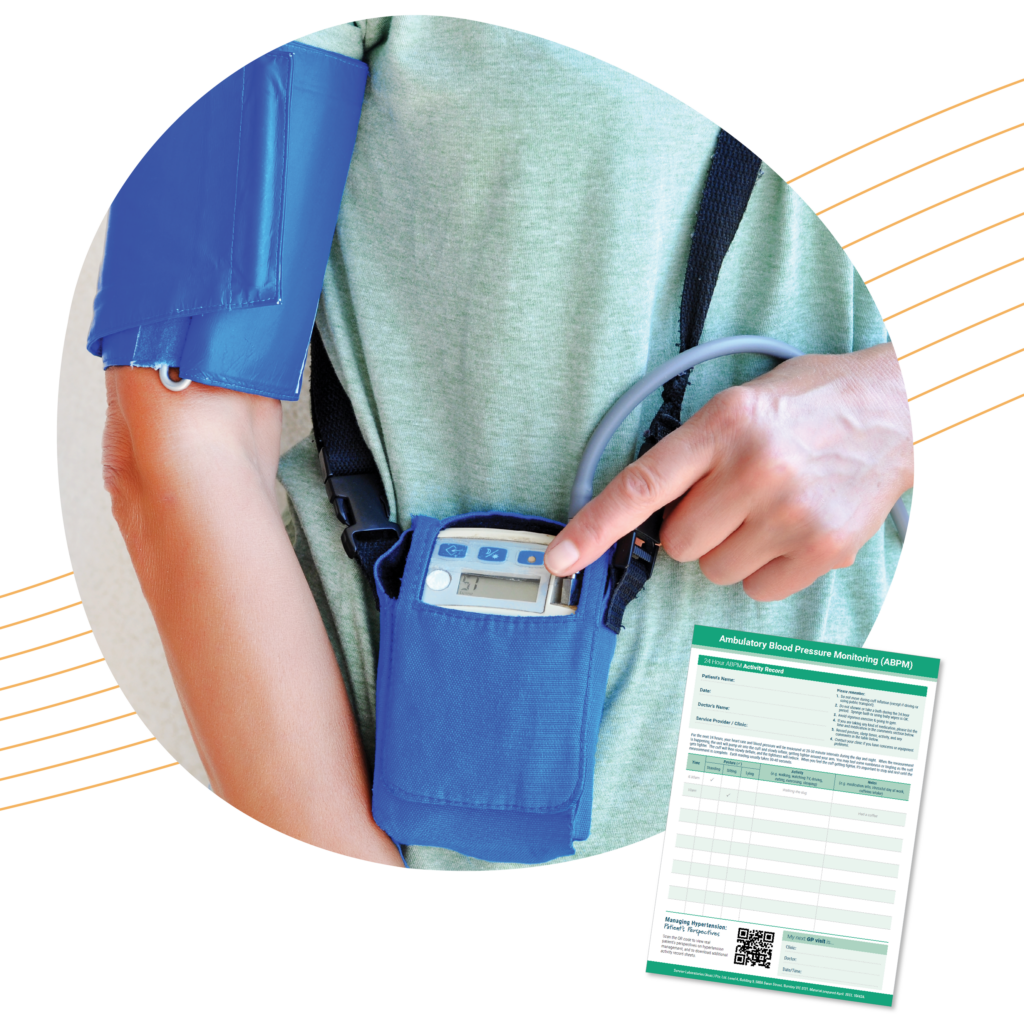
If your average blood pressure is:
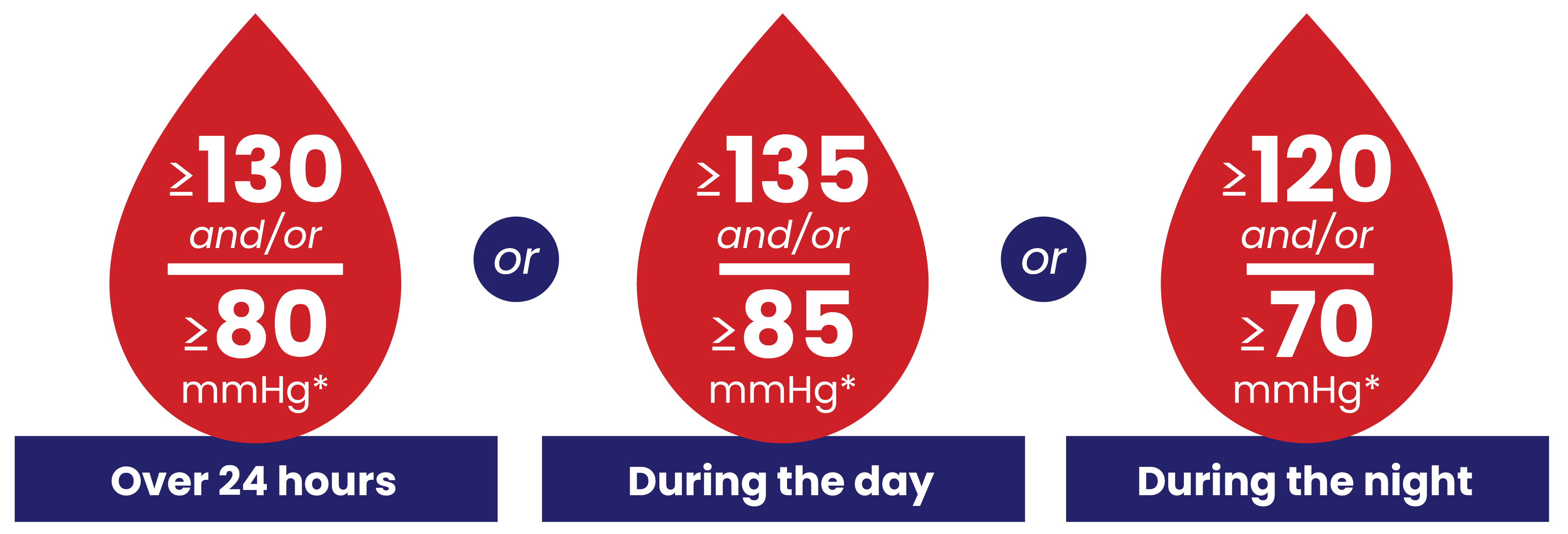
This means you have high blood pressure.
To help interpret these results your doctor may ask you to record some of your activities throughout the day in an activity diary.
Click here to download an activity diary.
Click here to download a handy fact sheet on ABPM
*mmHg means ‘millimetres of mercury’ and is a standard unit to measure pressure.
WHAT IS THE BEST ACTIVITY TO MANAGE BLOOD PRESSURE?
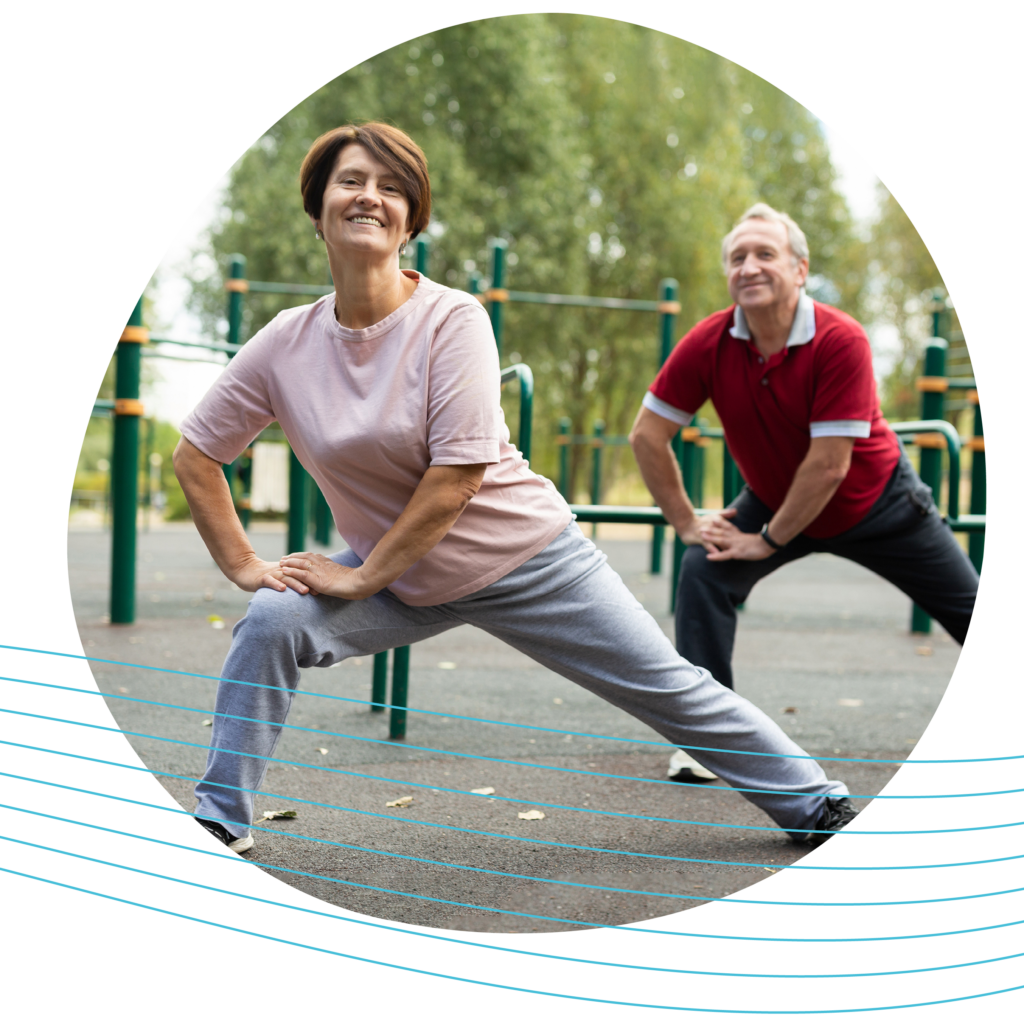
The more active you are, the lower the risk of developing high blood pressure.
If you have high blood pressure, exercise can help you to manage it and reduce your chance of health problems like heart attacks and strokes.
Any amount of exercise is better than nothing at all.

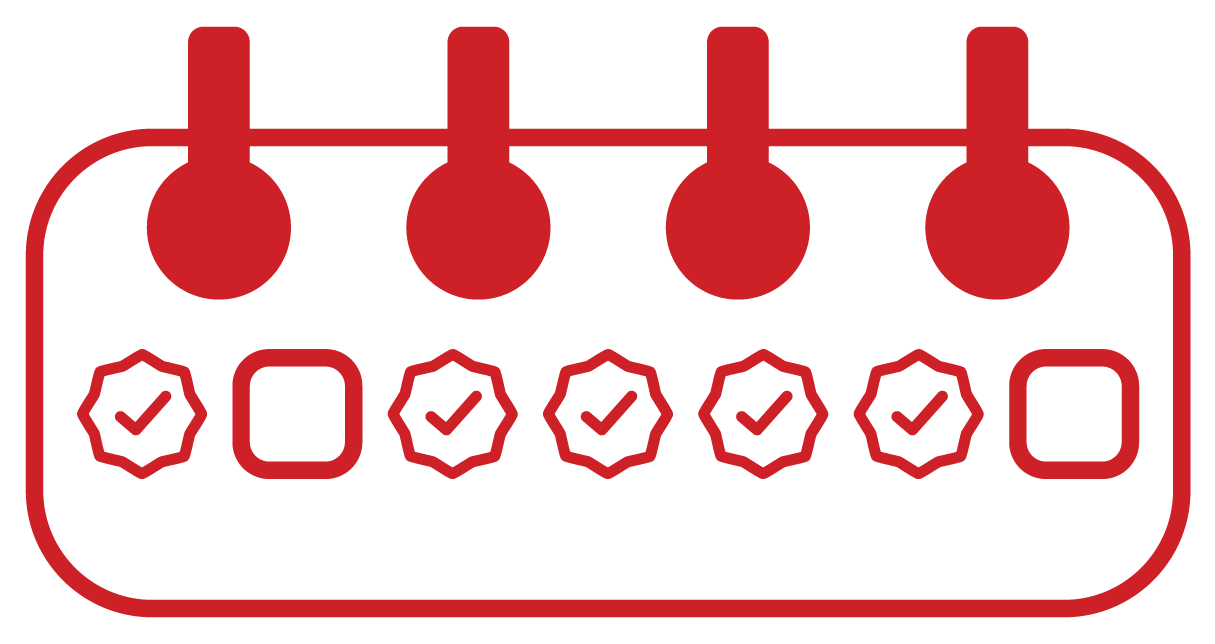
Frequency:
Ideally most days of the week

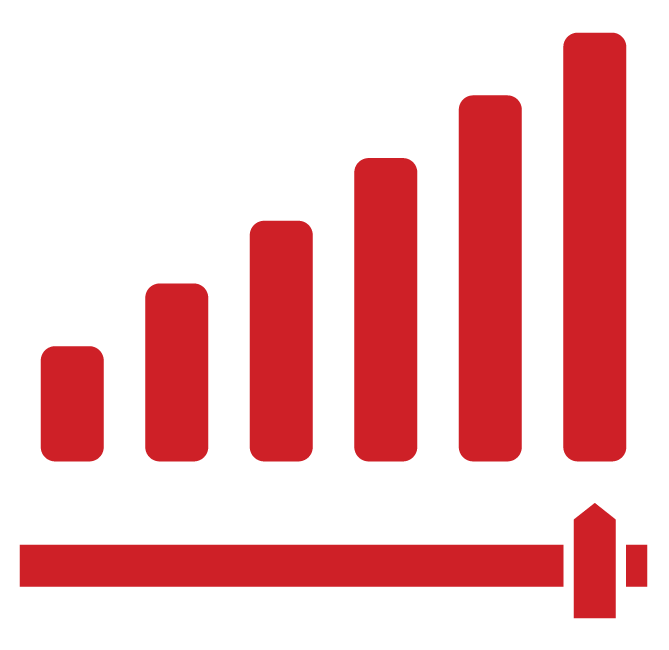
Intensity:
Moderate physical activity.
An intensity where you are
huffing and puffing but can
still talk to the person next to you

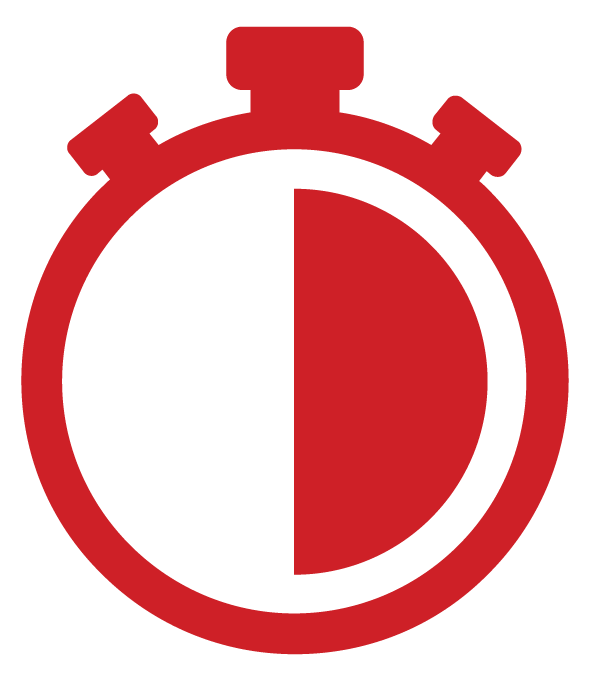
Time:
30 minutes or more of continuous
or intermittent activity each day

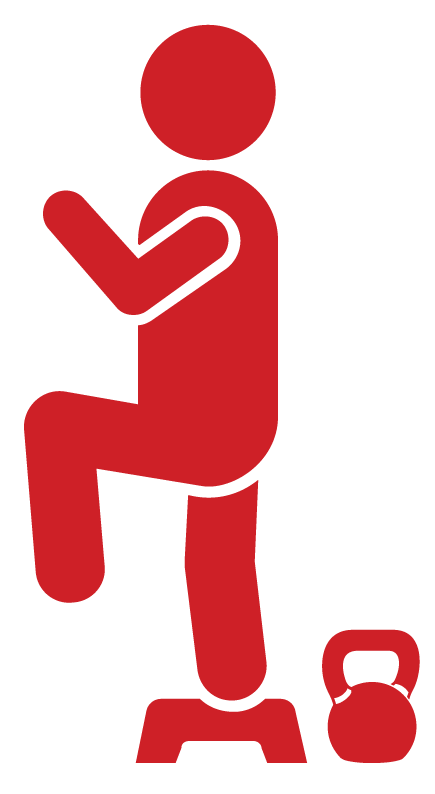
Type:
Primarily cardio activity but weight lifting activity is also great.
Cardio activities include walking, running, swimming and cycling.
You don’t have to go the gym to
lift weights, you can use cans
of soup or bottles of water instead.


Referral:
For more information speak
to your doctor or an accredited Exercise Physiologist
Click here to download a handy fact sheet on the Best Activity to Manage BP
WHAT IS THE BEST FOOD TO MANAGE
BLOOD PRESSURE?
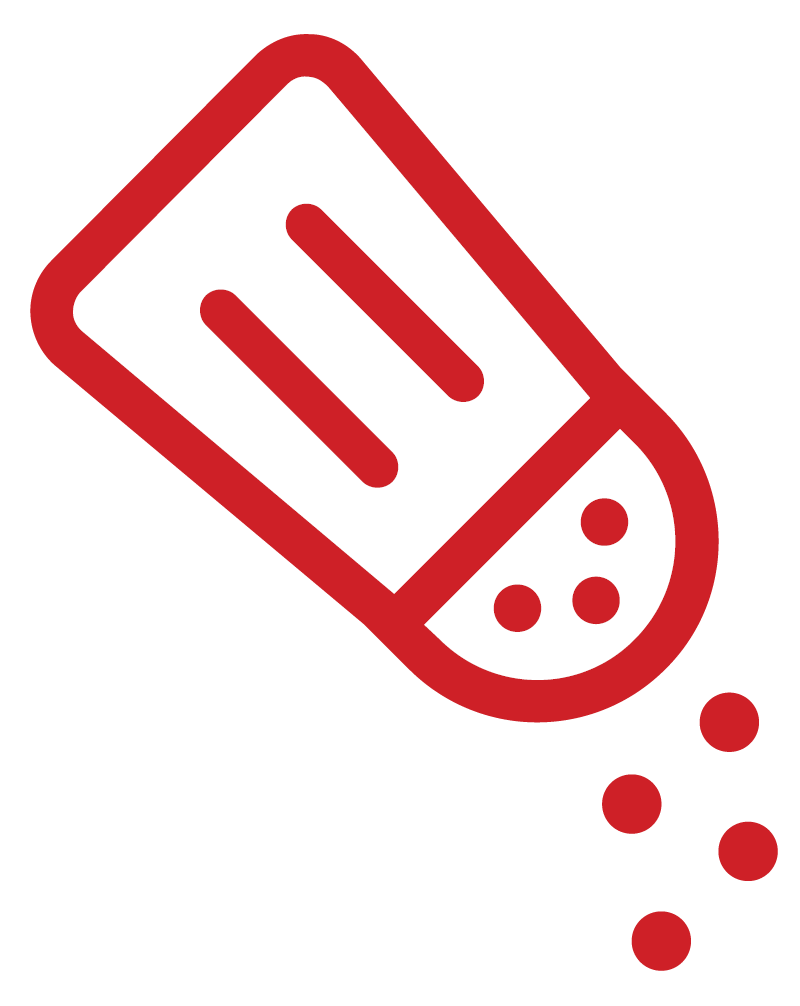
Limit the amount of sodium in the diet to 5g of salt (2000mg sodium) which is about one teaspoon.
You can find this information by reading the food labels on processed foods.
Increase the amount of potassium in the diet to 3,500-5,000mg/day.
Foods containing potassium include bananas, leafy vegetables, legumes, avocado, and salmon.

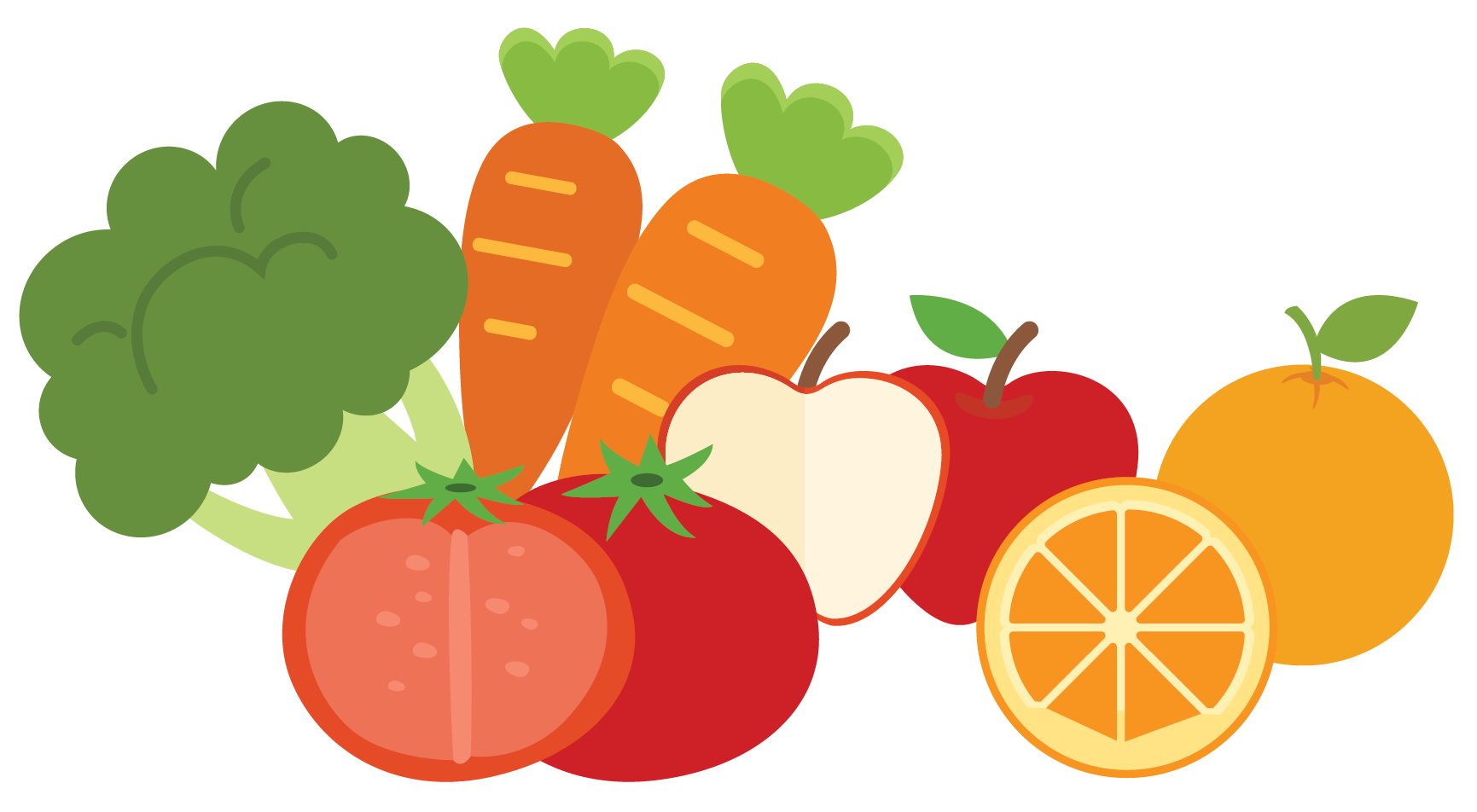
Increase fibre intake to 25-29g/day or more.
Foods containing fibre include fruit, vegetables, legumes, grains, and cereals containing oats.
Limit alcohol to less than 1 drink daily for women and less than 2 drinks daily for men.
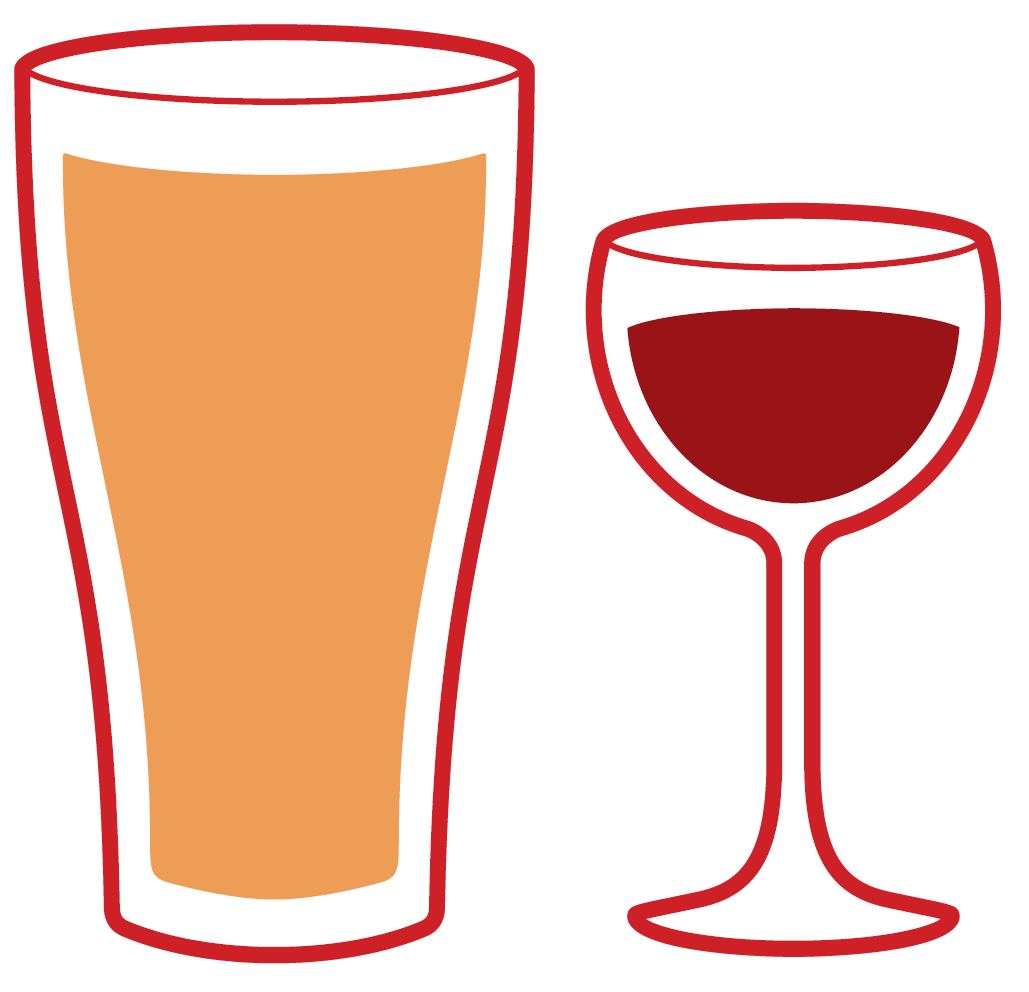
Click here to download a handy fact sheet on the Best Food to Manage BP
MANAGING HIGH BLOOD PRESSURE
IN OLDER ADULTS
As people age, management of high blood pressure can be a bit of a balance. It is important to follow your doctor’s advice as strokes and heart attacks can be prevented by managing high BP.
In fact, in the elderly, a lower BP target may provide greater protection from strokes and heart attack.
When trying to lower your BP, your doctor may want to monitor it more closely.
Checking your blood pressure at home may be helpful.
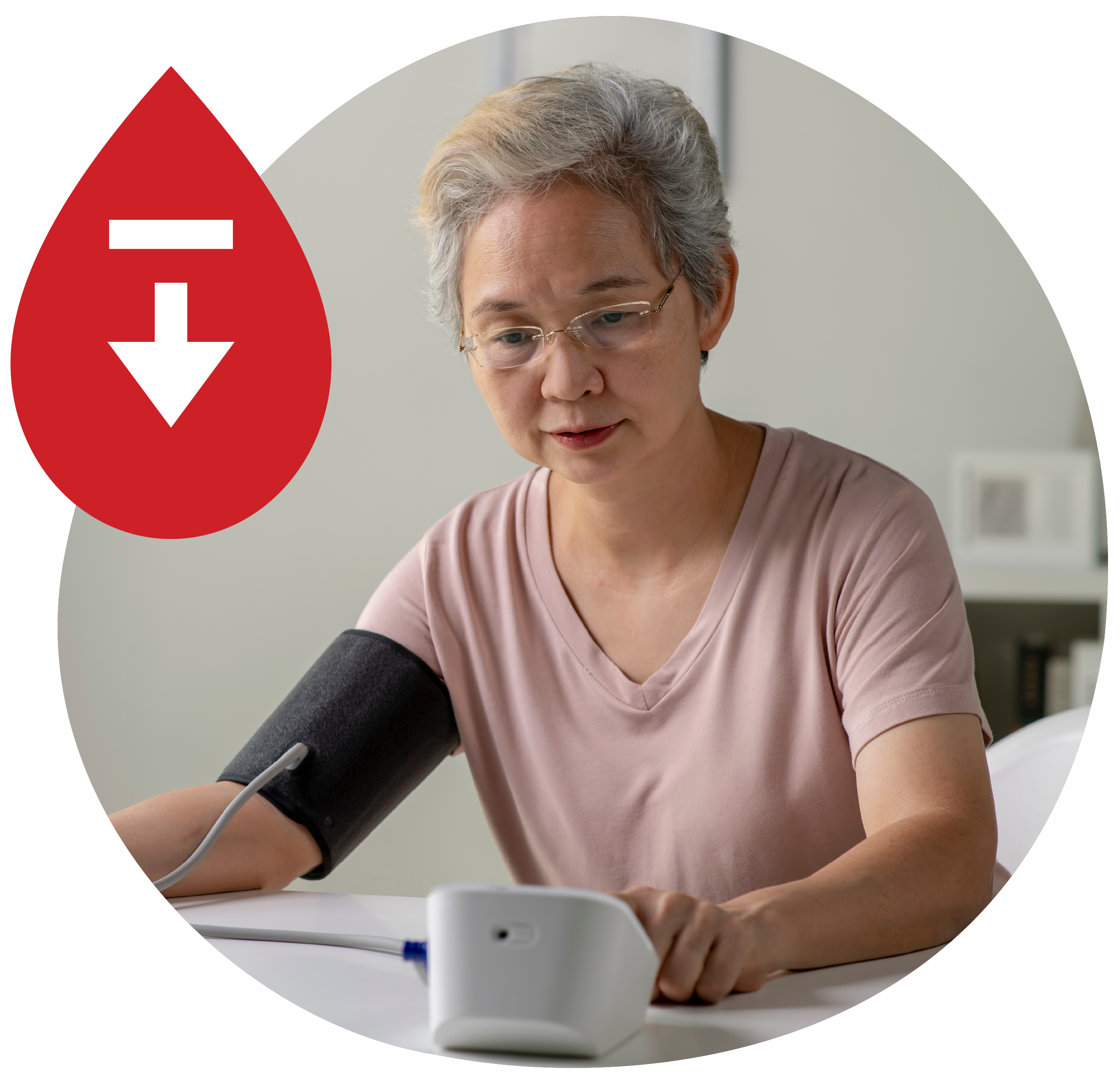
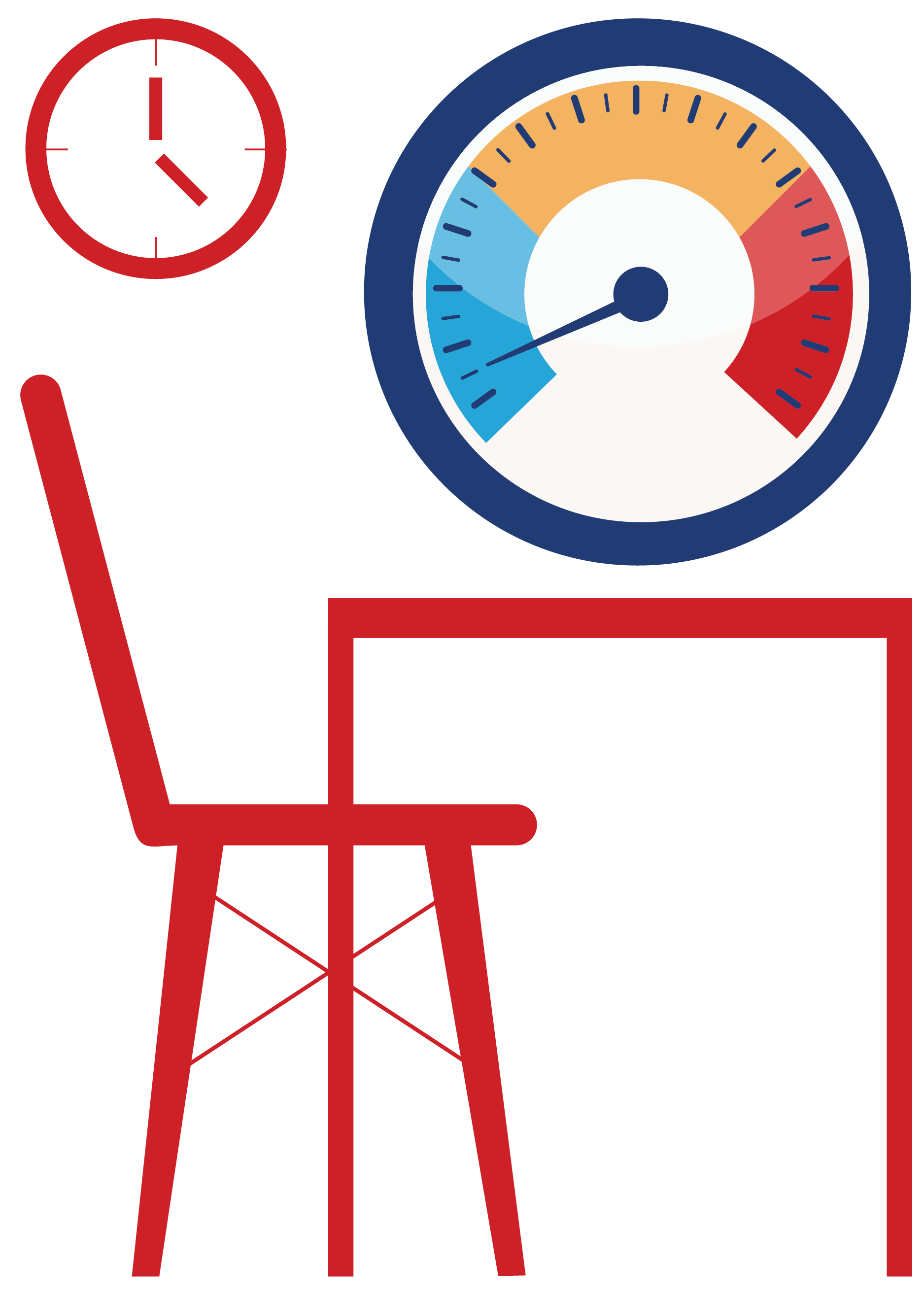
Ask your doctor or pharmacist for help choosing an accurate* home BP machine.
Click here to download BP monitoring sheets to record your home BP measurements.
*For a list of accurate blood pressure monitors, go to www.stridebp.org/bp-monitors
Click here to download a handy fact sheet on Managing High BP in Older Adults
MANAGING HIGH BLOOD PRESSURE
IN YOUNGER ADULTS
Maintaining healthy blood pressure is important to reduce the chance of heart attacks, strokes, and dementia later in life.
Your doctor might recommend that you check your BP away from their clinic, by using a home BP monitor or a device that measures BP over a 24hr time period.
Your doctor may explore if there are specific causes of high BP or if there are changes to your organs such as your kidneys as a result of it.
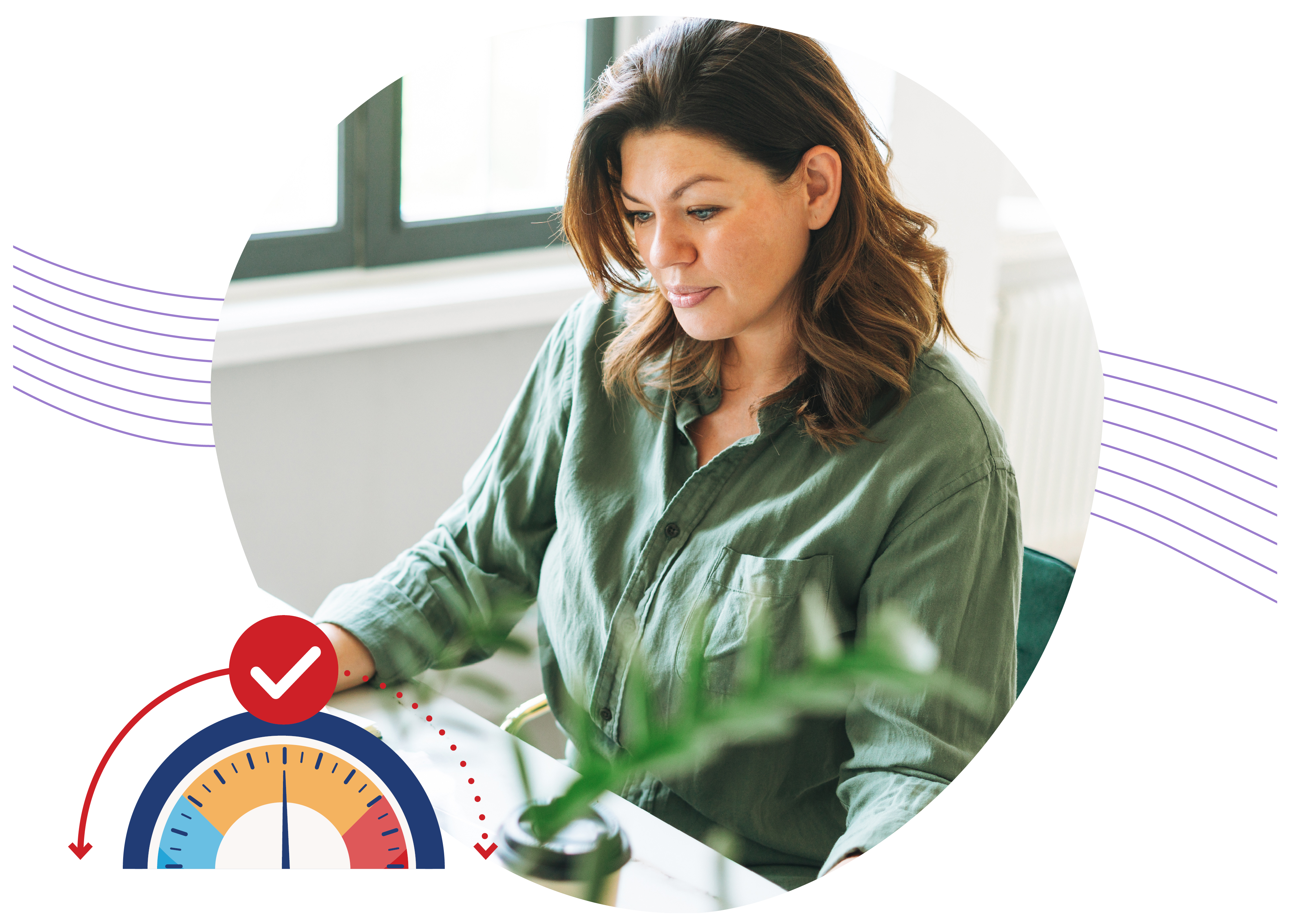
Address factors that may affect your blood pressure:
- Alcohol consumption
- High salt intake
- Illicit drug use
- Over the counter medicines (such as anti-inflammatory drugs), including from the pharmacy, supermarket and health food store.
Click here to download a handy fact sheet on Managing High BP in Younger Adults
HIGH BLOOD PRESSURE AND CHRONIC KIDNEY DISEASE
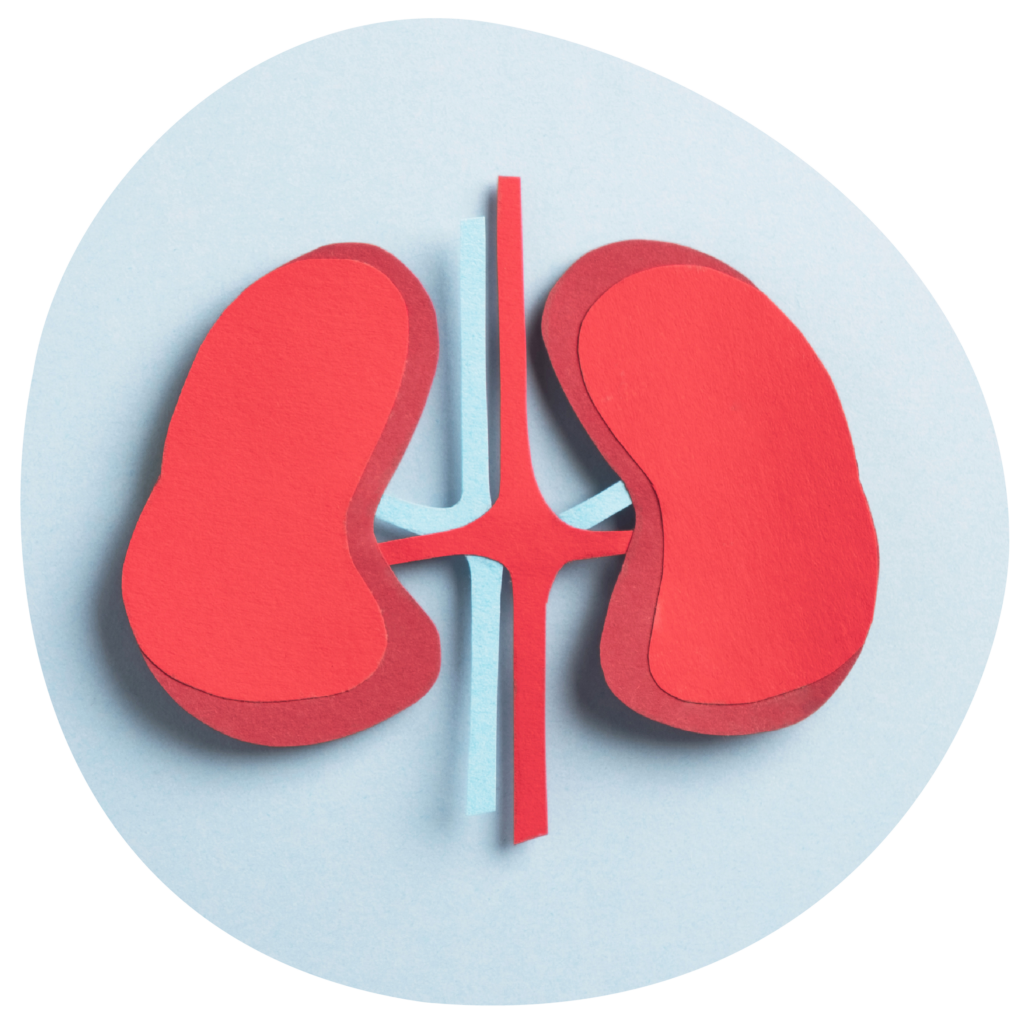
High blood pressure increases your chance of having a stroke, a heart attack, or developing chronic kidney disease (CKD).
High blood pressure damages the small blood vessels in your kidneys leading to chronic kidney disease.
With chronic kidney disease, waste products build up to high levels in your blood and can make you feel sick.
Early detection of CKD is important.
Early detection can slow progression to kidney failure. Ask your doctor to complete a Kidney Health Check to detect chronic kidney disease.
Managing blood pressure in people with CKD:
- Maintaining your blood pressure to below 130/80 mmHg* is one of the most important goals in managing CKD.
- Taking your blood pressure medicine/s prescribed by your doctor has an important effect on your kidneys and can help slow progression to kidney failure.
Click here to download a handy fact sheet on High BP and CKD
*mmHg means ‘millimetres of mercury’ and is a standard unit to measure pressure.
HIGH BLOOD PRESSURE AND STROKES
1 in 2 strokes can be prevented by simply managing blood pressure
High blood pressure is the biggest risk factor for stroke.
High blood pressure can lead to a stroke by:
- Damaging blood vessel walls and making them weaker. These blood vessels can then burst, leading to a bleed in the brain.
- Causing blood clots or plaques to break off artery walls, which then block an artery in the brain.
- Causing the heart to beat irregularly which can lead to clots forming and travelling to the brain.
Help lower your blood pressure by following advice on improving diet and increasing physical activity.
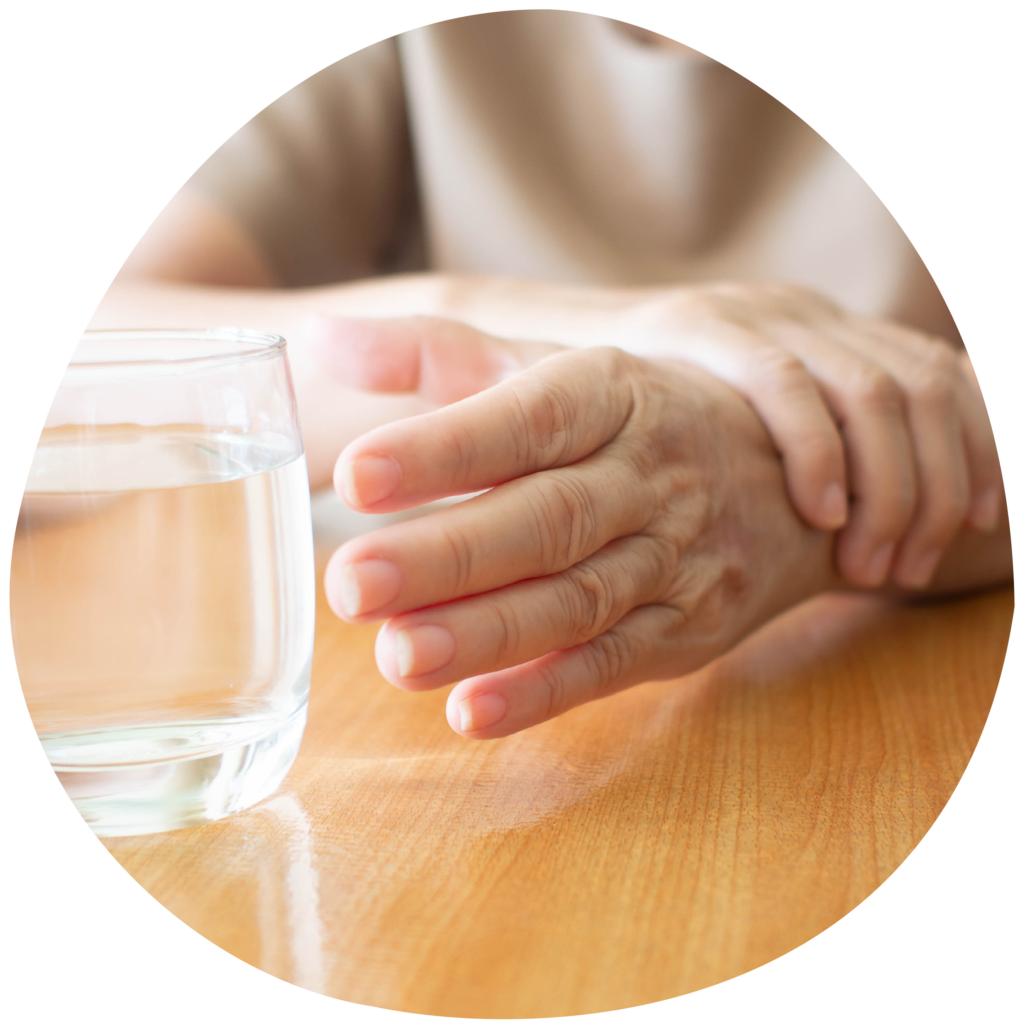
If you have had a stroke or a transient ischaemic attack* (TIA) you are at risk of having another stroke or TIA, so it is important that your blood pressure is well controlled. If you are prescribed blood pressure lowering medication, it is important to take it as directed by your doctor.
If you have not had a stroke or TIA, it is important to regularly check your blood pressure and if you have been prescribed blood pressure medications – take them as directed by your doctor.
* Transient ischaemic attack (TIA) occurs when the blood supply to your brain is blocked temporarily. The signs are the same as for a stroke, but they disappear within a short time. After a TIA, your risk of stroke is higher.
Click here to download a handy fact sheet on High BP and Strokes
PATIENT PERSPECTIVES
Meet Anooka.
Meet Anooka, who is living with high blood pressure. Anooka always took pride in his healthy lifestyle and was shocked by his diagnosis at age 32. Initially unwilling to believe his diagnosis, Anooka shares how he came to accept it and commence treatment.
Anooka also shares ways he takes control of his health, by behaviour modification and lifestyle changes.
“I couldn’t accept why this was happening to me,
why not someone else?”

More Patient Experiences.






Names changed. Stock photos shown.
Resources
Additional Resources & Patient Stories
BLOOD PRESSURE MONITORING DIARY
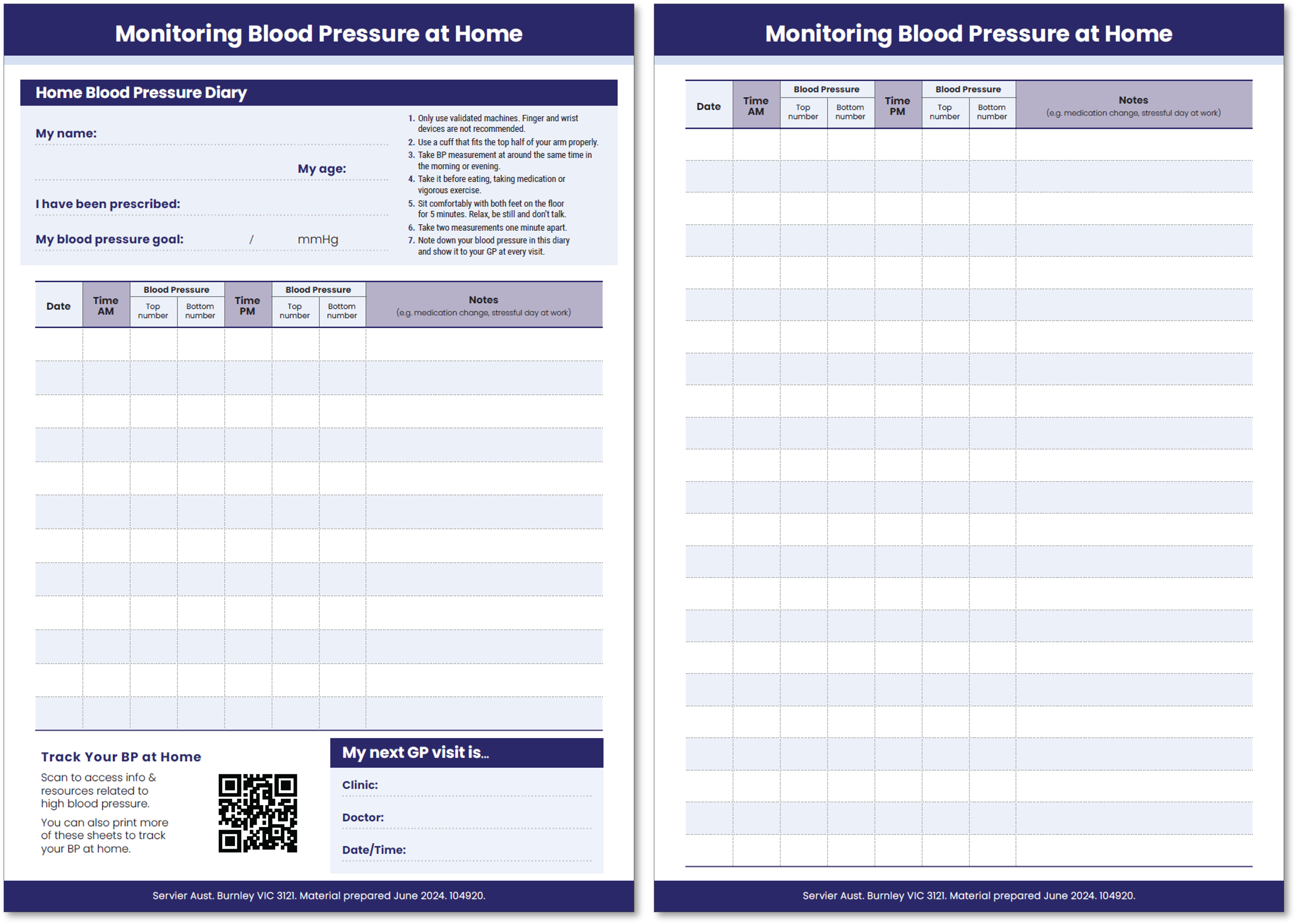
If your doctor has recommended for you to check your own blood pressure at home, we have a diary to make it easy to record the numbers. Having it written down makes it easy for you and your doctor to keep track. And you can take it with you each time you visit your doctor.
Click here download the blood pressure monitoring diary.
MY STORY, MY ADVICE
My Story, My Advice is a handy resource that includes real life stories from Australians living with high blood pressure.
This booklet is now also available in Mandarin, Arabic and Vietnamese.
Click here to access a copy in your language.
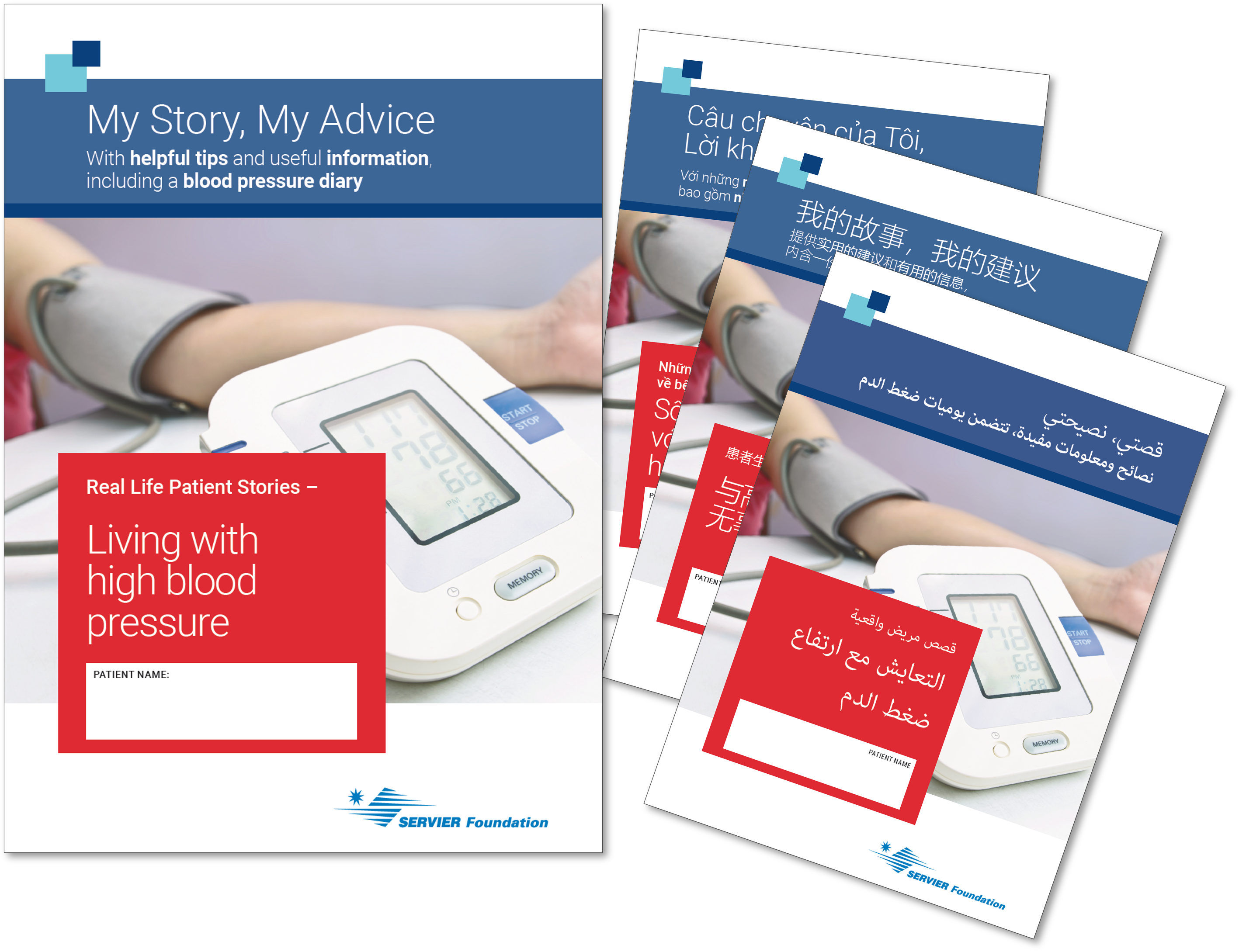
For more information or to report an adverse event contact Servier Medical Information on 1800 153 590.
Material updated May 2024.
